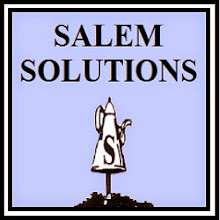By Margot Carmichael Lester, Monster Contributing Writer
Despite the high unemployment rate, college grads can find opportunities in this job market -- just maybe not the high-profile positions with nifty sign-on bonuses that may have been more prevalent in the past.
“It’s important to remember that business is still going on,” says Felicia Miller, assistant director of career services at The Art Institute of Las Vegas. “Opportunities do exist, but today’s college graduates have to be ready to modify their plans to accommodate the drastic changes to the job market…[like] a longer hiring process and greater competition.”
Getting a post-college job in this economy requires a new way of thinking about the job search and looking for work. Here’s how you can do it.
Think Broadly :
Don’t limit your job search too narrowly, counsels Nicholas Aretakis, author of No More Ramen: The 20-Something’s Real World Survival Guide. “If you’re interested in health administration, think of all the jobs related or even vaguely related to that field,” he says. “Do a brainstorming session and use the Internet for more ideas. This little activity will double, triple, quadruple your job prospects and your internship possibilities -- and may even change the way you were thinking about your future career.”
Act Globally :
If you can’t find the job you want here, consider working abroad. “It shows a breadth of knowledge, willingness to learn, adaptability and desire for personal growth,” says Scott Burroughs, director of operations at the US Air Force’s Osan Air Base in South Korea. “Working abroad seems to attract the personality that not only wants to know more about the world, but to experience it.”
In today’s world of increasingly globalized activities, being cognizant of other cultural differences and being able to operate efficiently in them is key. “Having language and managerial skills that go across countries can only help those businesses looking to expand markets in other countries, as most businesses are doing today,” Burroughs says.
Do Your Research :
Your best chance at standing out among a pile of resumes is to show that you “get it,” Miller says. “Most employers are most concerned with recent grads…understanding how their area of study fits into the larger picture of business. Can they comprehend the importance of the work they do as it relates to the mission and objectives of the company? Are they eager, not for pay, but to contribute, and to learn? Are they compatible with the company’s current team, and do they understand that school was their first step in a career-long education?”
Doing a little homework about the company is a start. Then figure out how your skills will benefit the bottom line and put that in your cover letter.
Be Productive :
If you can’t get a paying gig, take an unpaid internship or volunteer. “It’s important for a young person, particularly at the beginning of his or her career to use time productively,” says Andrew Yang, CEO of Manhattan GMAT, a New York City-based test-preparation company. “Employers don’t like the image of a college grad hanging out at home or doing odd jobs; it suggests a lack of engagement.”
Instead, he advises, “strive to appear to be progressing and challenging yourself at all times, even if it’s not a conventional position of employment.”
Get Help :
Your college’s placement office is a great place to start for leads, but don’t overlook off-campus resources like the local chamber of commerce. The Greater Oklahoma City Chamber, for instance, has the Greater Grads program. “We help employers start internship programs, and we help connect interns with potential employers,” explains Drew Dugan, the chamber’s vice president of education and workforce development. The program started in 2006 and by summer 2008 had 270 interns in 67 companies.
Stay Positive :
Don’t forget to remain positive, adds Kristen Fischer, author of Ramen Noodles, Rent and Resumes: An After-College Guide to Life. “The only thing that’s different for graduates coming into the job market this spring is that the economy is in worse shape than in years past,” she says. “If grads limit the amount of news they watch or read and [put] their energy into solid job-hunting, resume-writing and interviewing skills, they stand as good a chance of landing a great job as any class of new grads.”
Tuesday, May 8, 2012
Subscribe to:
Post Comments (Atom)

No comments:
Post a Comment